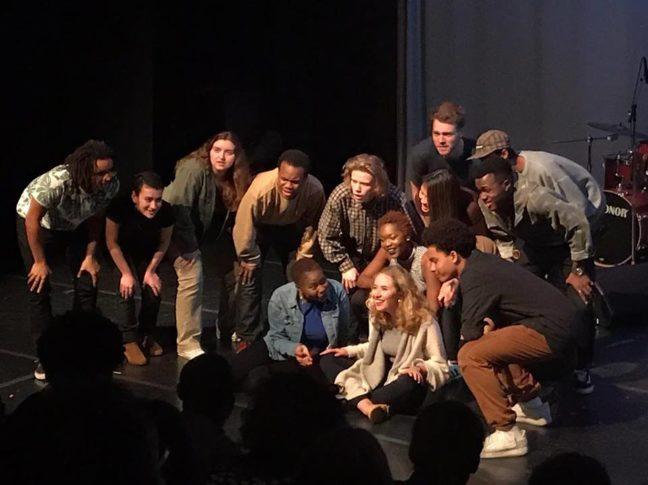The Line Breaks Festival returned to the University of Wisconsin April 11-16 to celebrate campus diversity and center the voices of First Wave student artists.
The festival was first started by Marc Bamuthi Joseph during his 2007 spring residency at the UW Art Institute, the festival has since become a beloved annual tradition.
The Line Breaks Festival serves as an integral part of the Multicultural Arts Initiative that houses the First Wave scholarship, according to Willie Ney, executive director and founder of the program.
The First Wave Hip-Hop and Urban Arts Learning Community is the only scholarship in the U.S. specifically for spoken word and hip-hop artists. While the Line Breaks Festival once featured guest artists, it is currently used to provide a platform for First Wave student artists to debut original works.
Because of this, the festival provided a unique opportunity for UW students to hear original works by student artists themselves and learn from the perspectives of their own peers, while centering the voices of students of color.
“It offers a chance for the university community to be a part of a festival that is primarily of young students of color — not exclusively, but primarily — and that’s a unique thing,” Ney said.
The festival also remains an important event for students of color on campus, to both perform and watch pieces that are directly relevant to their own lives and communities.
“It allows students of color … to be able to see things that reflect their own backgrounds and experiences, which is not something that happens every day on campus, not enough,” Ney said. “It kind of fills a void in terms of diverse art offerings.”
The event offered a forum for dialogue and community, through reflecting themes of healing, institutionalized racism, masculinity, relationships and tokenism in the context of higher education, Ney said.
Messages were relayed through a multitude of different mediums including film, dance, spoken word and music. The event spanned six days and each original piece was displayed twice within the festival.
Each work presented at the festival was a never-before-seen premiere, which offered an opportunity for attendees to interact with ideas in a fresh, new performance.
The festival began April 11 with a series of film screenings at the Chazen Mueseum of Art. The two films, “MasKuline” by Garret Pauli and “Baraha” by Gretchen Carvajal and Violet Jinqi Wan, kicked off the festival with heartfelt stories regarding identity and self-conflict.
The following day of the festival brought an assortment of solo and group performances including “Goddess at Your Feet: by Jamie Dawson and “Note to Self” by the Five Wave 10th Cohort.
Thursday’s performances took place at the Overture Center and featured dance, comedy and spoken word performances addressing themes of beauty, systemic realities of America and mental illness.
Line Breaks Festival is different from other shows or performances through its interactive themes and the sense of community it builds
“It’s different than going into a space, sitting down and then just leaving, and having no connection to the artists or the community. That’s the beauty of this,” Ney said. “People, by the time it’s done and it’s the last closing night, you can feel the sense of community that’s been built over the period of the festival.”
The artists for the festival are selected through applying to the event with proposals, and the program chooses a select amount of students to be featured.
“It’s a competitive internal process,” Ney said.
Once chosen, the student artists receive aid with direction, performance locations and funding.
The event is presented by the Division of Diversity, Equity and Education, and supported by a number of sponsors and partners including Forward Theater. Rain Wilson, artistic director of the Office of Multicultural Arts Initiatives, served as the curator for the event.
While this year’s festival has come to a close, it will return again next spring for new ideas, performances and community-building initiatives.


